February 15th, 2021
Overview
The University of Nebraska–Lincoln brings together the best and brightest from around the world to work on interdisciplinary solutions as a transformative, world-leading, 21st century, land-grant university without walls. Higher education institutions — and specifically land-grant universities — are uniquely positioned to contribute to solutions for the biggest challenges of the 21st century.
Our world is at an inflection point. Interconnected like never before after decades of globalization, we face a range of economic, environmental, social and demographic challenges made even more urgent by the COVID-19 pandemic. These challenges have shifted the world’s geopolitical landscape and the world economy, and will continue to do so in the years to come. Everyone from governments and businesses to higher education must continue to adapt to this new reality, determine their proper place in our interconnected-yet-changed world and enact policies and engagement strategies to make the most of that place.
Universities must have realistic global strategies accompanied by specific plans to advance those strategies in this era of limited resources and uncertainty. Already, the global pandemic has inspired innovation to increase efficiency and work collaboratively, as well as factor in new forms of virtual global education and engagement. This document — Forward Together — serves as a roadmap to guide the university in the years to come as we expand our global reach and impact to benefit the Husker community, the state of Nebraska, the United States and the world.
"At Nebraska, every person and every interaction matters. The grand challenges we pursue must reflect the breadth of research, scholarly and creative activity happening across campus. By recognizing how our combined strengths and expertise can be leveraged to solve our greatest problems, UNL can have major impact on our community, country and world."
Ronnie D. Green
Chancellor-emeritus, University of Nebraska–Lincoln
Background
The university’s impact can be felt across the globe. With 100 partnerships in 37 countries, more than 400 faculty conducting research around the world, over 840 students studying abroad in 56 countries and 3,600 international students and scholars representing 114 countries on our campus,* we engage the world in all aspects of our university mission.
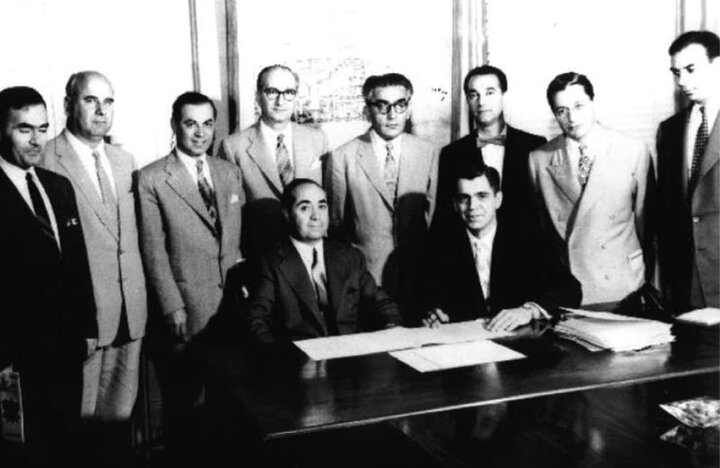
We believe in global engagement because our world is increasingly interconnected and our students must be prepared to live, work and serve in this new reality. We believe in global engagement because it diversifies our community, our campus and our classrooms — and diversity makes us better. We believe in global engagementbecause the grand challenges of the 21st century will require the best and brightest from around the world working together to address them.
Our global work today is rooted in a long history of global engagement. In 1869, the University of Nebraska charter was written to include a position specifically for a Chair of International Law. In 1901, the first two international students enrolled at the university. In the 1950s and ‘60s, Nebraska helped build university capacity in Turkey and Colombia. Since our founding, we have seen international student populations and global partnerships abound, with much of our engagement driven by faculty members whose work transcends borders. Though always strategic in nature, this work was never guided by an established framework. With the implementation of a formal strategic plan, we aim to:
- Harness and align the full capacity of UNL as an institution.
- Increase communication and visibility of global initiatives on campus and within our community.
- Bring together and support our faculty, staff, students and local/international stakeholders in their efforts to solve complex issues and pool resources and ideas.
* Figures are from the 2018-2019 Academic Year.
Developing the Global Strategy
Forward Together: A Global Strategy was created through a deliberative, year-long process guided by the American Council on Education’s (ACE) Internationalization Laboratory framework. The process was led by four co-chairs of the Global Strategy Committee:
- Josh Davis, Associate Vice Chancellor for Global Affairs
- Sophia Perdikaris, Professor of Anthropology and Director of the School of Global Integrative Studies
- Frauke Hachtmann, Professor in the College of Journalism and Mass Communications
- Cody Hollist, Associate Professor in the College of Education and Human Sciences
Faculty and staff members representing academic colleges and key campus units formed the Global Strategy Committee, which worked to catalog and identify past and current global engagement across campus, benchmark UNL’s position compared to peers and contribute to the creation of the strategy. Committee members included:
- John Beghin, Clayton Yeutter Institute of International Trade and Finance
- Donna Dudney, College of Business
- Megan Elliott, Johnny Carson Center for Emerging Media Arts, Hixson-Lied College of Fine and Performing Arts
- Matt Ellis, Academic Services and Enrollment Management
- Nkenge Friday, Office of Diversity and Inclusion
- Rumiko Handa, College of Architecture
- Courtney Hillebrecht, College of Arts and Sciences
- Emira Ibrahimpasic, School of Global Integrative Studies
- Gary Kebbel, College of Journalism and Mass Communications
- Brian Lepard, College of Law
- Dan Linzell, College of Engineering
- Patrice McMahon, University Honors Program
- Nathan Meier, Office of Research and Economic Development
- Beth Niehaus, College of Education and Human Sciences
- Veronica Riepe, Student Affairs
- Maegan Stevens-Liska, Office of Global Partnerships & Initiatives
- Brianne Wolf, Institute of Agriculture and Natural Resources
Stakeholder Engagement
The Global Strategy Committee crafted Forward Together with the understanding that global engagement at Nebraska is truly a collective effort. This engagement requires purposeful effort and builds upon a commitment by faculty, staff, students, alumni and our local community to engage with diverse global issues and perspectives that impact all of our lives and our university.
The success of our plan greatly depends on the support and engagement of our various stakeholders, and is informed by the needs and interests of the following internal and external groups:
- Internal: Academic colleges and institutes; Faculty; Staff; Students
- External: Alumni; Community members and organizations; Local, state and federal government representatives; International partners (university and government); Donors
Four Global Affairs units, led by Josh Davis, Associate Vice Chancellor for Global Affairs, form the foundation of global engagement and facilitate campus internationalization efforts at Nebraska. These units work closely with campus partners, academic units and research centers to amplify the message of global engagement across the university, the state of Nebraska and the world.
- The Office of Global Strategies brings together the university community, local community and our international partners to tell the Global Nebraska story and facilitate campus internationalization efforts through partnership development and global strategy.
- The Education Abroad Office fosters students’ global awareness and personal, academic and professional growth by offering a variety of study, internship, research and service-learning opportunities outside the U.S.
- The International Student and Scholar Office provides critical immigration and support services to assist UNL’s international students and scholars, and supports faculty and staff in their work to create a positive experience at Nebraska for international students, scholars and employees.
Programs in English as a Second Language provide critical language education and support services that help non-native English-speaking students achieve their personal, academic and professional goals. They offer a variety of in-person and online programs to meet the needs of degree and non-degree seeking students, as well as customized programs.
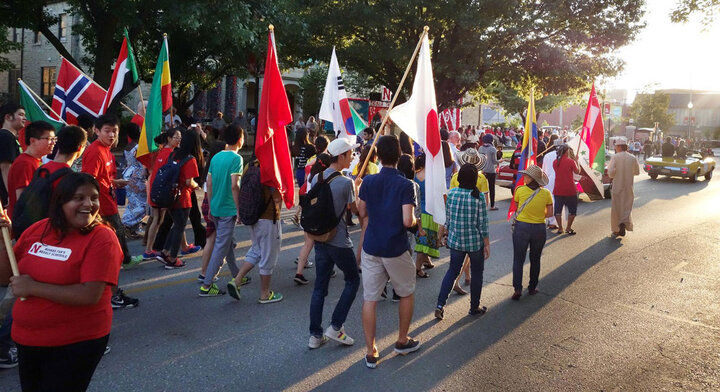
Integration with the N2025 Strategic Plan
This global strategy aligns with the bold vision established in Nebraska’s N150 Commission Report and the N2025 Strategic Plan, which outline the university’s overarching aims, strategies and targets for the next five years. Crafted in close alignment with N2025 as well as the Office of Research and Economic Development’s Grand Challenges planning process, Forward Together will serve as an adaptable framework to guide the global engagement of the entire university community and enable colleges and units to connect their specific efforts.
Strategy Goals & Framework
The University of Nebraska–Lincoln is a 21st century land-grant university that prepares its students, faculty and staff to succeed in today’s interconnected world and contribute practical solutions to our world’s biggest challenges. The Forward Together strategy is comprised of four primary goals with accompanying key initiatives and objectives under each goal:
- Future & World Ready: Reimagine what constitutes a global experience for our students — inside and outside the classroom.
- Partner for Impact: Support and incentivize contributions toward solving world challenges through strategic partnerships.
- Bring the Best to Nebraska: Be a magnet for the best and brightest students, scholars, faculty and staff from around the world.
- Strong Foundation: Strengthen the university’s global affairs infrastructure and operations to anchor engagement for years to come.
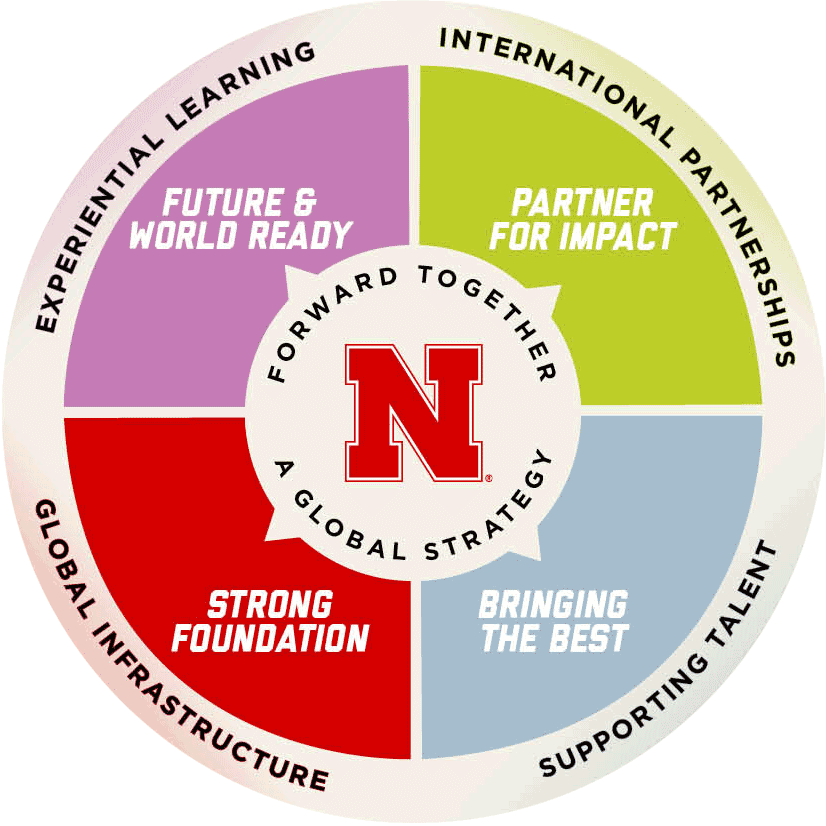
Goal 1 | Future & World Ready: Reimagine what constitutes a global experience for our students — inside and outside of the classroom.
Nebraska commits to providing the best possible experience for our entire community, including innovative experiential learning beyond the classroom that enables our students to be future and world ready upon graduation. This means being globally competent and world-savvy citizens; understanding the world and their place in it; and having the skills necessary to compete in the global marketplace. Students develop these skills not only in the classroom, but through co-curricular engagement and a range of hands-on experiences on and off campus. Nebraska will reimagine what constitutes a “global experience” and leverage technology and resources within our own community to increase access to these experiences. We will seek to collaborate with local industry partners and organizations to create international professional development and internship experiences in collaboration with college units, as well as cross-cultural service-learning and programmatic opportunities for engagement between domestic and international students.
This goal is grounded in Aim 1 of the N2025 Strategy, which commits to innovating student experiences that prepare graduates to be lifelong learners and contributors to the workforce in Nebraska and the world.
Initiatives:
- Expand Global Experiential Learning: We must lower barriers to traditional education abroad and expand our definition of what constitutes a global experience.
- Create a Global Experiences Innovation Fund to spur the creation of new forms of global learning, including virtual exchanges and global classrooms, virtual and inperson international internships, “study away” domestic travel experiences, domestic service projects with international components, globally-focused student organizations, etc.
- Launch an affordability initiative within education abroad programming that adds at least 10 new programs at or below the residential cost of attending Nebraska to further encourage increased participation in education abroad.
- Establish a Global Experiences Office by transitioning the Education Abroad Office to support in-person, virtual and expanded experiential learning opportunities at home and abroad, thus streamlining support for global learning. Ensure alignment with academic unit needs by embedding staff in Colleges, adding a faculty member to the team and expanding the charge of the existing Education Abroad Advisory Committee.
- Develop a Global Credential: Nebraska will establish a “World-Ready Credential” that complements existing majors and minors across the university.
- Co-create a credential that recognizes students’ global competency and ties to both academic curriculum and co-curricular activities.
- Expand indicators of global citizenship and encourage campus units to adopt global citizenship in every academic and service unit.
- Partner with Peace Corps to increase the credibility and visibility of this global credential.
- Support Internationalization of the Curriculum: We must incorporate international themes throughout our coursework and across disciplines to provide students a global education and the skills needed to succeed in today’s interconnected world.
- Revise the ACE 9 approval process requirement in 2021 with the Academic Solutions Council to increase depth and quality of classes; improve transparency of specific topics covered in each course; streamline framework for easy re-approval; and standardize curriculum internationalization.
Expand funding opportunities for internationalizing the curriculum, such as the “Global Perspectives in the Curriculum” grant.
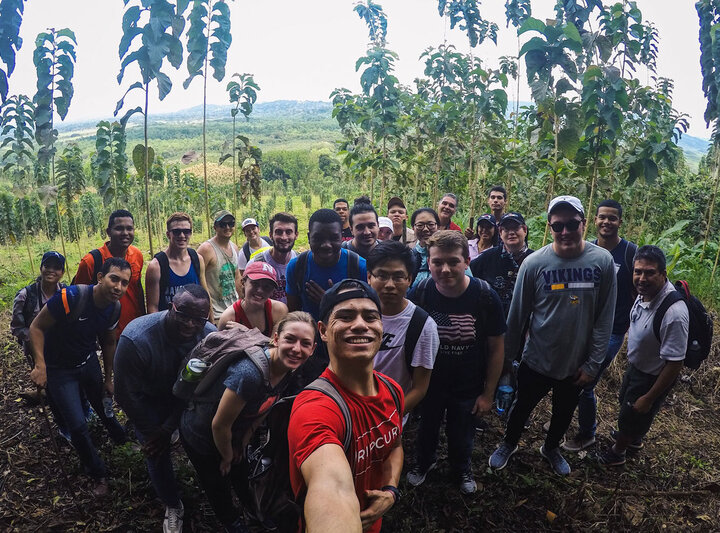
Goal 2 | Partner for Impact: Support and incentivize contributions toward solving global grand challenges through strategic partnerships.
Engagement is a key part of the land-grant mission that brings Nebraska to the world — and the world to Nebraska — through a university where students, faculty, staff and alumni are actively engaged around the world. We will transform our research, scholarship and creative activity culture to further support the expansion of international activity and partnerships and focus on solving challenges critical to Nebraska and the world. By providing professional development opportunities and incentives, we will equip faculty, staff and students to tackle global challenges.
This goal acknowledges Aims 2, 3, 4 and 6 of the N2025 Strategic Plan: impactful research and creative activity, interdisciplinary endeavors to solve critical challenges, broadened engagement with Nebraska’s partners and increased professional development opportunities.

Initiatives:
- Leverage & Prioritize International Partnerships: Global challenges require global solutions brought about by global collaborations. Now, more than ever, we must use strategic partnerships with academic institutions and organizations around the world to increase Nebraska’s international reputation and advance work towards solutions for Grand Challenges.
- Identify strategic partners in each major world region to serve as hubs of engagement for establishing new international partnerships.
- Create an institution-wide strategy for international partnerships that includes assessment of partnership sustainability, impact on stakeholders, potential for partnership renewal and connection to local international community.
- Strengthen Relationship between Global Affairs & ORED: The relationship between Global Affairs and the Office of Research and Economic Development (ORED) is crucial to promote research and creative activity tied to global challenges.
- Identify points of contact in Global Affairs and ORED that will work in close concert to coordinate work identified in this initiative.
- Highlight Nebraska’s existing work to federal funders and private foundations.
- Track, Recognize & Reward International Activity: We must recognize and reward faculty and staff efforts with a global impact that increases the university’s international reputation, particularly in alignment with ORED’s identified Grand Challenges.
- Improve international activity and reputation management by creating a data management structure that tracks and measures our global impact, as well as monitors international activities and progress towards strategic goals. This structure will enable the university to quickly respond to emerging opportunities and identify individuals and partners who might contribute based on their previous global activities and background.
- Encourage the rewarding of faculty and staff for their international activities and engagement through the hiring, merit, tenure and promotion review processes among departments and academic units.
- Create a university award for global contributions that recognizes faculty and staff contributions to campus internationalization and partnership building.
- Support Faculty & Staff Global Expert Networks: A key component of Nebraska’s success in meaningfully contributing solutions to Grand Challenges relies on faculty and staff being equipped with the necessary skills and knowledge to participate in interdisciplinary international research and creative activity.
- Increase professional development opportunities that help build an expert network of UNL faculty and staff who are competent and enthusiastic to tackle global grand challenges, inside and outside the classroom.
- Develop pathways for more faculty and staff to have international experiences in teaching/learning, research, service and outreach, and review professional leave policies to allow easier pursuit of international professional development opportunities like Fulbright.
- Adopt United Nations Sustainable Development Goals Framework: In addition to Nebraska’s identified Grand Challenges, we will adopt the Sustainable Development Goals framework to assess our impact on issues important to the community and the world. The United Nations adopted these 17 goals in 2015 as a universal call to reduce inequalities and increase world prosperity by 2030
- Participate in the Times Higher Education (THE) Impact Rankings to further establish our international reputation as a university with global impact. This is the only global performance table that assesses universities according to the United Nations Sustainable Development Goals.
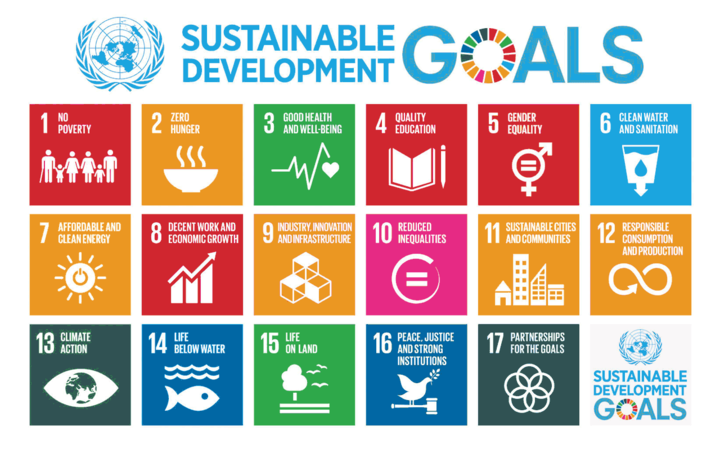
Goal 3 | Bring the Best to Nebraska: Be a magnet for the best and brightest students, scholars, faculty and staff from around the world.
International faculty, staff and students enrich our campus and our community. They add diversity to our classrooms and our labs. Their contributions drive innovation and workforce growth, and they make substantial contributions to our economy. The competition for the best and brightest from around the world has never been fiercer. While the U.S. was once a preferred destination for international students and scholars, their numbers are now declining due to a number of factors, including federal immigration policy. Going forward, U.S. higher education institutions must make deliberate efforts to attract and retain global talent, to support that talent and to maintain those connections with alumni once they return home.
This goal acknowledges Aim 5 of the N2025 Strategic Plan, which emphasizes, prioritizes and expands inclusive excellence and diversity. It is also guided by the core principle that every person and every interaction matters, including those in our international community.
Initiatives:
- Create New Student Pathways to Nebraska: Price is increasingly an important factor for international students as they are looking for flexible opportunities to study in the U.S.
- Partner with the Office of Admissions to implement their international recruitment strategy, with an emphasis on countries and world regions that align with Nebraska’s strengths and priorities, and to create innovative pathways such as joint or double degrees programs and transfer options.
- Improve tuition support for international students by conducting a net-pricing assessment for international non- resident tuition, expanding international scholarship options to align with strategic initiatives and introducing the alumni legacy scholarship to the international market.
- Appoint a Director of International Recruitment, created and selected by Office of Admissions, to oversee Nebraska’s international recruitment strategy and coordinate between Admissions and the Office of Global Partnerships & Initiatives.
- Expand Programming & Support for International Students: Student support and programming opportunities are critical for student engagement and retention, especially for international students whose personal networks are often thousands of miles away.
- Grow the team of International Student Success Navigators to coordinate and increase outreach, support and programming initiatives for international students and scholars at the undergraduate and graduate level.
- Launch a partnership between Global Affairs and the Honors Program that pairs international students with domestic students at both the undergraduate and graduate levels to help create a welcoming atmosphere and a space for intercultural engagement and learning.
- Prioritize international student career support in partnership with colleges and University Career Services to ensure international undergraduate and graduate students receive targeted support for internships, research and professional development opportunities to build their professional experiences and resumes.
- Explore launching an initiative with the Chamber of Commerce and Nebraska Department of Economic Development to highlight the potential for international students to fill Nebraska’s talent gap and meet workforce needs by making use of Optional Practical Training (OPT) to acquire work experience.
- Strengthen Support for International Faculty & Staff: Non-U.S. citizens face a number of challenges in being hired and integrating into a new workplace. We will take a number of steps to increase support for these important members of our community.
- Improve access to immigration counsel and support for new international faculty and staff and streamline the internal process required for permanent residency sponsorship.
- Update HR policies and practices to better serve non-U.S. citizen faculty and staff, including the creation of a manual on best practices and hosting regular professional development and trainings for business center staff.
- Partner with the Office of Diversity & Inclusion (ODI): Recognizing that international faculty, staff and students add to the strength and diversity of our institution, the Global Affairs units launched an internal Coalition on Diversity and Inclusion to strengthen ties to the efforts of the Office of Diversity and Inclusion and to better advocate for members of our community.
- Create and co-sponsor events, educational and professional development opportunities, on the inter-related topics of international education and diversity and inclusion for Global Affairs units and the entire campus community, in collaboration with ODI and other campus units.
- Build Ties to International Alumni: Our people will always be our greatest asset, including those that have returned to their home countries.
Increase engagement with international alumni in support of the “Huskers for Life” program through collaboration with the Office of Admissions, Nebraska Alumni Association and the Office of Global Partnerships & Initiatives.
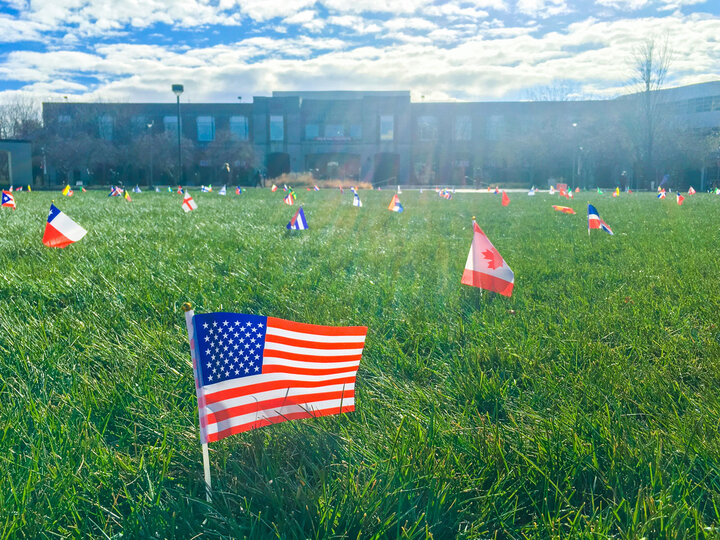
Goal 4 | Strong Foundation: Strengthen the university’s global affairs infrastructure and operations to anchor engagement for years to come.
Global engagement is complex. When done right, it requires careful consideration of geopolitical trends, assessment of risk and foresight of emerging opportunities. It requires clear policies and procedures for handling everyday issues around international aspects of human resources, transfers of funds and compliance issues. It necessitates a team of experts across different global functions. More than anything, it requires long-term institutional commitment and a willingness to align strategy, people and resources. When this occurs, the foundation is laid for long-term gains in the global sphere. Nebraska’s Forward Together strategy strengthens the university’s existing structure and lays such a foundation to anchor both current and future global initiatives and to create campus-wide synergies, resulting in a truly, comprehensively internationalized university.
By providing a strong foundation for Global Affairs, this goal enables the core aspirations of the N2025 Strategic Plan to impact lives and build communities as a transformative, world- leading, land-grant institution.
Initiatives:
- Establish Global Affairs as Hub of International Activity at UNL: A hub-and-spoke model for managing Nebraska’s global engagement — with colleges and key units across campus serving as the “spokes” and Global Affairs as the “hub” — will help us better coordinate our activities, facilitate campus-wide engagement and tell a compelling story of UNL’s global reach and impact.
- Create a Global Center in Louise Pound Hall that brings the four Global Affairs units together in closer physical proximity, encourages collaboration across units, creates a streamlined experience for student support — whether they are domestic or international — and highlights in a very tangible way the importance of global engagement to our campus.
- Rebrand the Global Affairs units to clarify roles and responsibilities. A recurring theme from campus stakeholders was confusion over the structure of the global units and areas of responsibility. In order to serve as a “hub” of campus global activity, it is essential that the campus community be clear on what each office’s responsibility is and how they can be of service, with special emphasis on linkages with colleges and avoiding redundancies.
- Rename the existing Office of Global Partnerships & Initiatives to the Office of Global Partnerships and Strategy and the Education Abroad Office to the Global Experiences Office.
- Align roles and responsibilities of the International Student and Scholar Office and Programs in English as a Second Language and outline the ways in which they support international students.
- Establish Regular Funding Mechanisms to Support Global Affairs Units: Reliable funding is essential for proper management and planning of global activities under the Forward Together strategy.
- Provide for regular operations of Global Affairs through the new budget model.
- Develop a global fundraising plan that provides additional support for internationalization efforts at the university, including the development of a donor engagement plan.
- Improve Campus Coordination on our Shared Global Agenda: This global strategy calls for the active participation of all academic colleges and service units across campus. In order to facilitate a lasting culture of global engagement at UNL, we must closely align our global priorities and measure progress across campus.
- Create a Global Engagement Council chaired by the Associate Vice Chancellor for Global Affairs that will guide this strategy’s implementation and serve as a regular channel of internal communication to track progress and identify opportunities for greater collaboration.
- Encourage colleges to contribute to the Forward Together global strategy by developing a mechanism such as a Global Engagement Plan or adapting a current college strategic plan.
- Communicate Our Global Story: Communication is crucial to further elevate the university’s international reputation. We must make a conscious, strategic and unified effort to tell the global story of Nebraska’s education, research and engagement activities.
- Partner with University Communication and campus communicators to tell a comprehensive story about Nebraska’s international successes that go beyond news items and are tied to the university’s mission and vision.
- Elevate the “Global Nebraska” brand established by the Global Affairs units as a unifying identifier for all global engagement activities at the university.
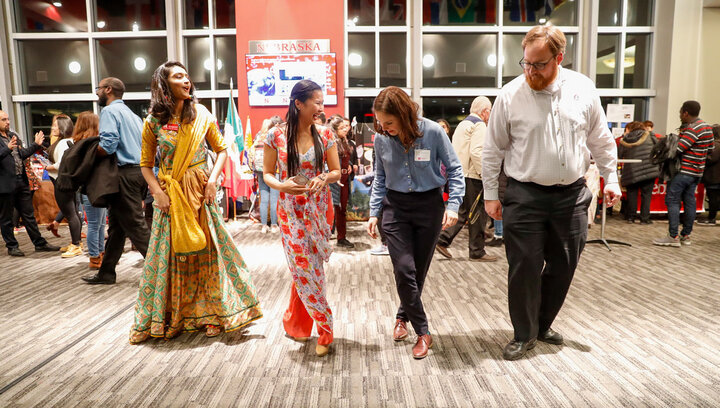
Implementation & Evaluation
The Forward Together document and regular progress reports on each of the four goals will also be made available on a new website dedicated to the global strategy, hosted at global.unl.edu.
The following steps will be taken to regularly evaluate progress made on the Global Strategy:
- The Global Engagement Council will work to monitor and evaluate campus global engagement activities by using a mixed-methods approach to track progress on a six-month basis, with a focus on enhancing quality of efforts and continual program improvement.
- The Office of Global Partnerships & Initiatives will create reporting templates to provide comparable longitudinal reports on type and number of programs and census of participants.
- The Global Engagement Council will develop a periodic “impact assessment” approach to examine the overall impact of internationalization at Nebraska.
- The Office of Global Partnerships & Initiatives will publish results and accomplishments in the Global Nebraska Annual Report.
Timeline for Strategy
The Forward Together global strategy will be implemented over the remaining five years of the N2025 Strategic Plan (2021-2025). Initial implementation began in Fall 2020 with campus-wide feedback of the global strategy draft, with increased execution beginning in Spring 2021.
| Pre-Launch 2020 | Phase 1 2021-2022 | Phase 2 2023-2025 | Long-Term 2021-2025 |
|---|---|---|---|
|
|
|
|
For questions or inquiries, contact the Office of Global Partnerships & Initiatives at globalaffairs@unl.edu.
